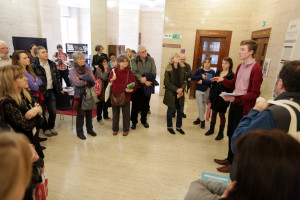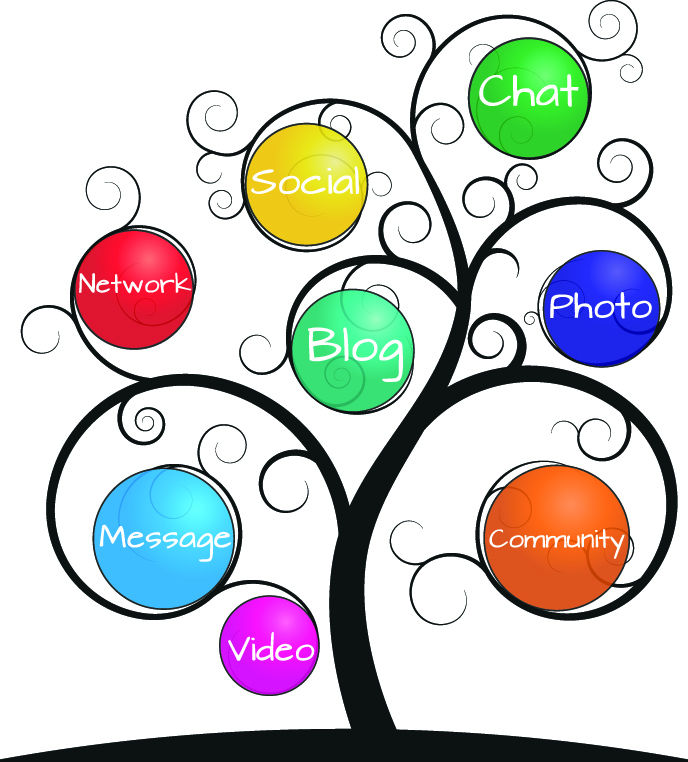To mark the launch of our call for applications for the first SAS/Senate House Library ‘Public Engagement Innovators’ scheme we asked some staff from across the School about their experiences of public engagement and how it has influenced their research and professional practice. In this first post, Dr Henry Irving – postdoctoral researcher in the Institute of English Studies—answers our questions about his experiences engaging the public with research on the communication history of the Ministry of Information.
- Could you tell us a little bit about who you are and the research that you do/your role in SAS?
I am a researcher working on the Institute of English Studies (IES) project ‘A Communication History of the Ministry of Information, 1939-46’. The project aims to better understand the Ministry’s relationship with the public by applying techniques from the field of publishing history. It is looking into the ideas which underpinned the publicity material produced by the Ministry during the Second World War and trying to gauge the public’s reaction. It is my job to trawl through the various archives which hold relevant material.
- What public engagement activities have you been involved with in the School?
The project ‘A Communication History of the Ministry of Information, 1939-46’ is AHRC funded and the IES have an explicit commitment to public engagement. This means that I have been involved in public engagement from the very start of the project in January 2014. The highlight so far has been the Being Human festival. This included a variety of Ministry of Information-themed activities and I helped to organise an exhibition, an afternoon of talks, and a series of walking tours of Senate House. These events made the most of the fact that parts of the Ministry had been based in offices which now house the School. The ultimate aim was to connect the participants with the Ministry’s history, and it remains a pleasure that the activities were well received by participants.
- Why do you think it is important for researchers to get involved in public engagement?
It is important to remember that public engagement is nothing new. Take the example of Professor John Hilton. He was a Cambridge sociologist who specialised in industrial relations and wrote a book called Strikes and Lockouts. But he is better known for his efforts to ensure the public contributed to and benefited from research. This led him to host a ‘question and answer’ programme on the BBC, write a weekly column for the News Chronicle, and hold public lectures in his home town of Bolton. Hilton was so good at what we now call public engagement that he was asked to join the Ministry of Information as its Director of Home Publicity in 1939. I am similarly keen to hear from those who were touched by the Ministry’s work, and am determined that those who fund research should benefit from its findings.
- What have been the three most challenging experiences whilst undertaking public engagement activities?
There have been a number of practical challenges. One particularly memorable occasion occurred when I was giving a talk in a remote part of North Yorkshire during winter and almost ended up driving into a reservoir. However the more usual challenges include rooms being inexplicably locked, technological failures, or people not turning up. I remember running another ‘talk’ with just one audience member during a former project. The most important challenge is always the need to gauge what the participants want to get from an event. It is for this reason that I try to include lots of time for questions and answers from the outset. I have found this a useful way of gauging people’s different ‘starting points’.
- What have been the three most rewarding things that you have taken from public engagement?
This is another hard question to answer! The most rewarding thing about public engagement in general are those occasions where participants make spontaneous connections between the topic and aspects of their everyday life. You could call this the ‘John Hilton moment’. It is also incredibly rewarding when you hear new perspectives about a topic and find out things that you simply didn’t know. The Being Human walking tours of Senate House are a great example of both of those trends. The fact that the activities were well received by those involved was rewarding in its own right. It was an honour to have been involved in this first national celebration of the humanities.
- Do you think that getting involved in public engagement has helped your research? If so, how?
It undoubtedly has. My involvement in public engagement has allowed me to think about my research in new ways, and has led to many new lines of inquiry. The connections made through such activity has also had a very tangible benefit for the project ‘A Communication History of the Ministry of Information, 1939-45’. For example, the project’s public-facing activities recently led to me being alerted to a stash of personal papers relating to a key official within the Ministry. I suppose that this is proof that you never quite know where public engagement will end up taking you!
Now Read on:
Further information about the research project ‘A Communication History of the Ministry of Information, 1939-46’ can be found at http://www.moidigital.ac.uk/. You can also follow project updates on Twitter @moidigital.

